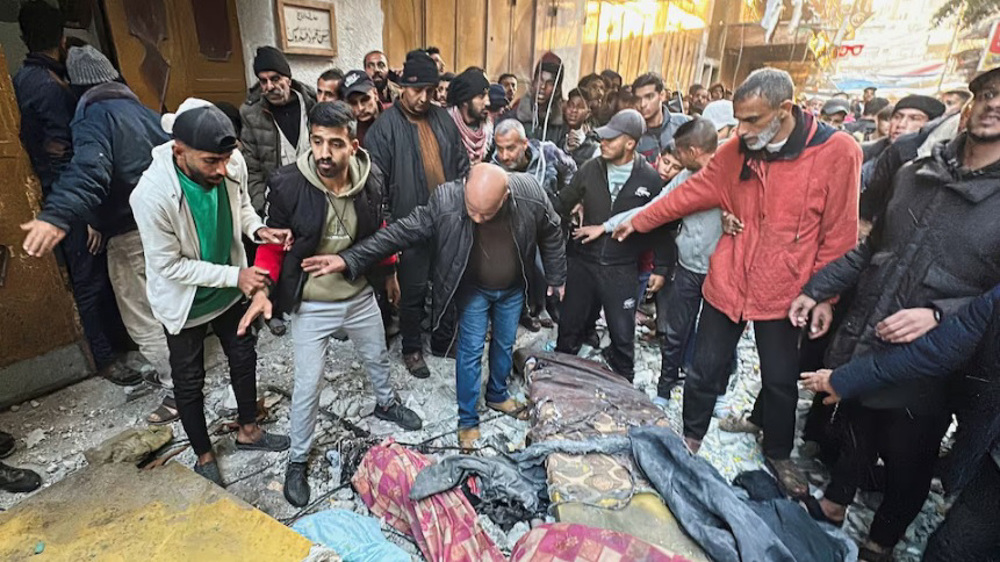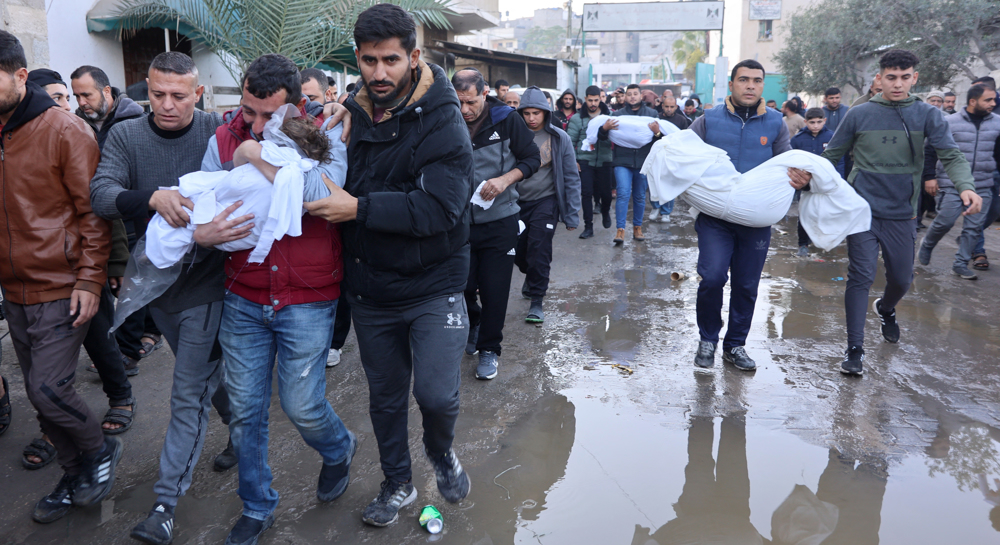Massive US-Saudi arms deal upsets Israeli leaders
Israel has voiced concern about the ability to retain its "qualitative military edge" in the Middle East following the $110 billion arms package signed between the US and Saudi Arabia over the weekend.
“Saudi Arabia is a hostile country and we must ensure that Israel’s qualitative military edge is preserved,” Energy Minister Yuval Steinitz was quoted as saying by the Israeli media on Monday.
Under the deal, Riyadh will receive $110 billion in arms effective immediately, plus at least another $350 billion over the next 10 years, which Steinitz called "a matter that really should trouble us."
The minister indicated that the US had not consulted with Israel before inking the massive arms deal.
“Hundreds of millions of dollars in weapons deals is something we should receive explanations about,” he said.
White House spokesman Sean Spicer said on Twitter that the agreement was the “largest single arms deal in US history.”
A senior White House official, however, said the arms deal would not erode Israel’s qualitative military edge in the Middle East.
The State Department said the wide-ranging deal would cover five specific areas, including "offers of extensive training and support to strengthen our partnership and the Saudi armed forces.”
The package includes tanks, artillery, armored personnel carriers, and helicopters as well as warships, helicopters, patrol boats, and associated weapons systems.
It would also include Patriot missiles and the Terminal High Altitude Area Defense (THAAD) anti-missile system, which was recently deployed by the US in South Korea.
Israeli Intelligence Minister Yisrael Katz said the US-Saudi arms deals should be in line with "a regional coalition under American leadership to block and push back Iran.”
“At the same time Israel’s qualitative military edge should be maintained,” he said.

However, Minister Ayoob Kara, Israel's point-man for engagement with the Arab world, warned that Riyadh might become a “world power with military superiority over” Israel.
A top US official and a member of Trump’s entourage said Washington understood what he described as Israel's "completely legitimate" concerns and vowed to help Tel Aviv maintain its military advantage.
"We’re taking a whole bunch of measures, some apparent some not so apparent, to ensure Israel’s qualitative military edge. That will in no way be compromised," the official said.
The concerns were voiced as Trump planned to visit Israel on Monday. "You’ll hear a really strong statement from the president on his commitment to Israel and to Israel’s defense," the US official said.
In September, Israel and the US signed a “historic” arms deal under which Tel Aviv will receive $38 billion in military aid over a decade.
Part of the fund is earmarked for purchasing 50 of the world’s most advanced fighter plane, the F-35, which has been touted as giving Israel complete air superiority in the region for the next 40 years.
A February report by Stockholm International Peace Research Institute said arms imports jumped by 86% between 2012 and 2016 in the Middle East, mostly bought by Saudi Arabia, the UAE and Qatar.
The Middle East accounted for 29% of global arms purchases, an increase of almost double from the previous five-year period, it said.
D-8’s role in Iran’s economy after Cairo summit
China slams US as ‘war-addicted’ threat to global security
China ‘firmly opposes’ US military aid to Taiwan
VIDEO | Press TV's News Headlines
President Yoon Suk Yeol to be removed from office
At least 19 Gazans killed by Israeli airstrikes since dawn: Medics
Leader: Iran neither has nor needs proxy forces
US fighter aircraft shot down ‘in friendly fire’ amid aggression on Yemen















 This makes it easy to access the Press TV website
This makes it easy to access the Press TV website